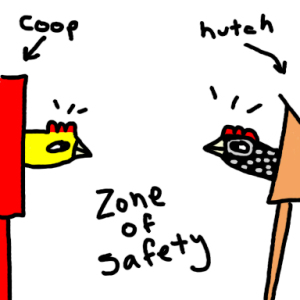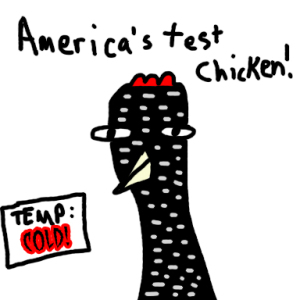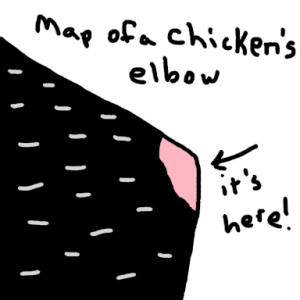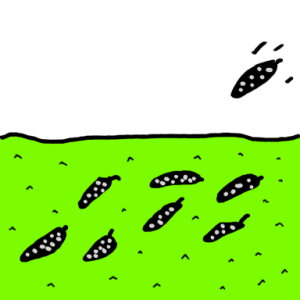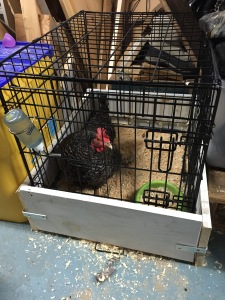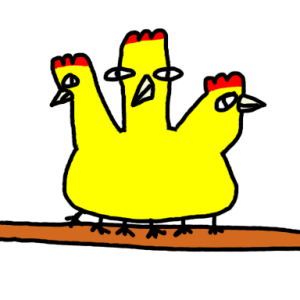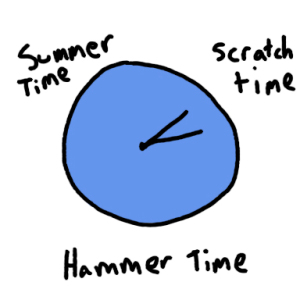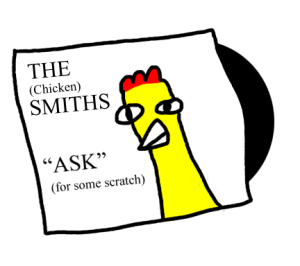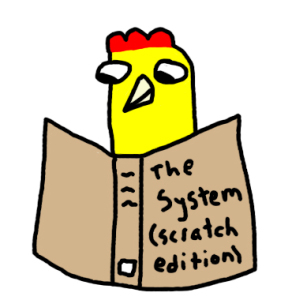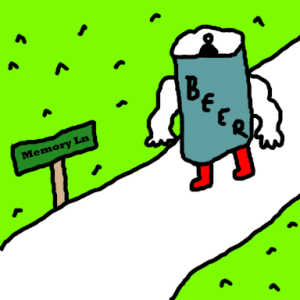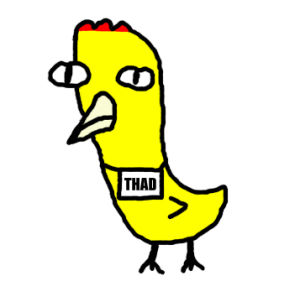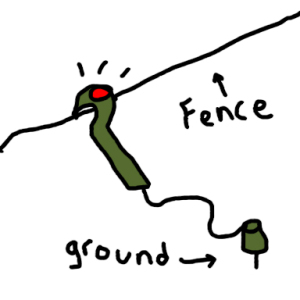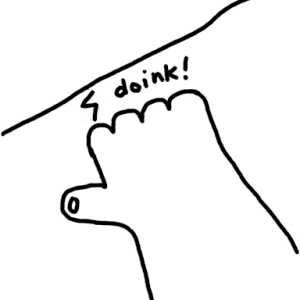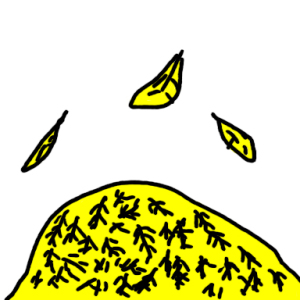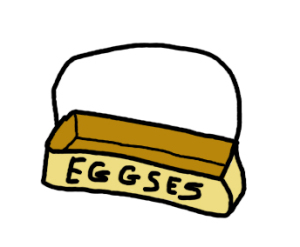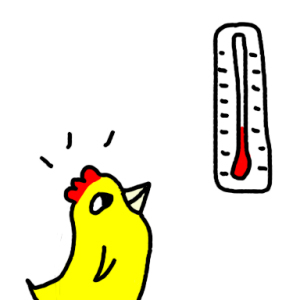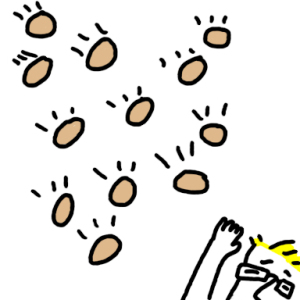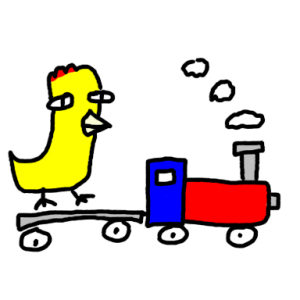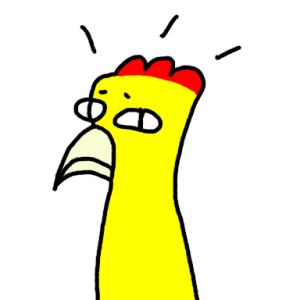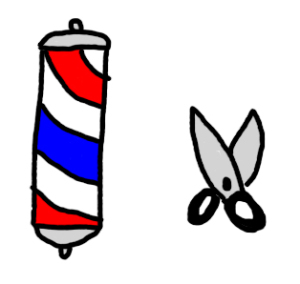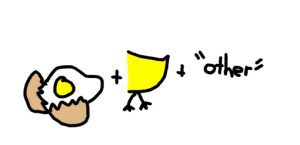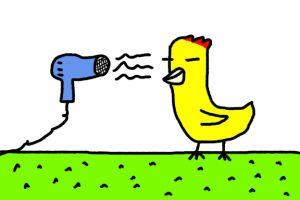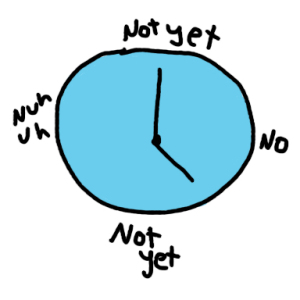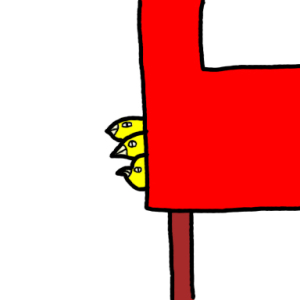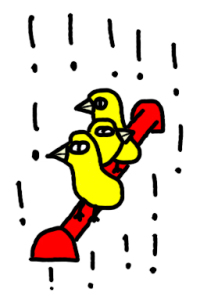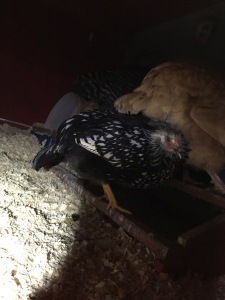We Need To Talk About Boss Chicken
Friday, December 5th, 2014Those of you who are regular listeners and readers know about Boss Chicken. For those of you who aren’t, or are just forgetful, let me give you a crash course. Boss Chicken was my first alpha hen, who we really worried might be a rooster until she started laying eggs. She was that aggressive, and had been since she was a week old, when we got her. She and the late Suzy Creamcheese had a real rivalry going for a time, which involved a lot of chest bumping, and basically Boss Chicken being up in Suzy Creamcheese’s business at every turn. I suppose you don’t get to be called Boss Chicken without having to constantly remind people why that’s your name. But one morning I went out and found that Boss Chicken had spent the night under the coop, in temperatures in the teens. “What’s up with that?” I asked. The chicken didn’t answer, but when she tried to walk, I figured it out. Her legs no longer seemed to work properly, so she obviously could not have gone up the ramp into the coop. The vet said it could be Marek’s Disease, a potentially deadly affliction that can affect the legs, and can be fatal. There’s no way of knowing though, until you do a necropsy, which you need a dead chicken for, and she was still very much alive. I later met another chicken enthusiast who described a chicken with similar issues, and he was under the impression that his bird had had a stroke. So I suppose that’s a possibility too. Whatever the cause, she got way less aggressive, and since she couldn’t move quickly, we had to keep her separate from the rest of the chickens. You’ve heard of the pecking order, right? It involves real pecking. Gruesome “Planet of the Chickens”-style pecking. Suzy Creamcheese now rose to power, and in order to assert her position, pecked Boss Chicken bloody the first time they met post-injury, and so Boss Chicken now lives in a nice rabbit hutch. She can see the others, but at a safe distance.
Since Boss Chicken lives by herself, she doesn’t get the benefit of clumping together with other chickens on cold nights. Her hutch keeps her out of the wind, which is very important, but I often worry that on really cold nights, how cold is too cold? Minnesotans and Canadians often post online about how cold it gets where they are and their chickens are fine. But that’s usually a flock, not a lone chicken. And I am a worrier. So is one chicken capable of withstanding extreme temperatures? Is this a test I’m willing to undertake?
As we entered our first cold snap of the Fall, this was on my mind. Some people wonder, “when is a good time to turn on the heat?” I wonder about when a good time to bring Boss Chicken inside is. I have a dog crate in our storage area that I put her in during inclement weather. I had almost made up my mind over the summer that she would be fine alone all winter, as long as I gave her plenty of wood chips to nest in. And then I noticed that she had a few bald spots on her wing bones, sort of what amounts to a chicken’s elbow. This is probably because when she walks, it’s so wobbly that she has to balance with her wings. The skin looks fine, and not irritated, but some of the feathers have worn off. So now I had to consider if the bare skin could take the cold. My sense was that this was risky.
Then a weather forecast called for nights to get into the twenties. This could have been the big test, except I couldn’t help but notice that the rabbit hutch was looking more feathery than usual. Of course she had also started molting right as the cold front came in. I’ve had other chickens molt in very cold weather, but they had the rest of the chickens to act as blankets to make up for their lost feathers. It seemed like I had to bring her in now, except that molting can make it painful for chickens to be touched, and obviously, I had to touch her to get her inside. I looked at the forecast again. It was going to hit the teens in a few nights. I apologized for any discomfort I was about to cause her, and carried her inside, leaving a pretty large trail of feathers behind me.
This may seem like a lot of unnecessary worrying, but Boss Chicken is a special case for me. Even when she was a terror, she was my favorite, because she had such a big personality. Now she’s ill, or at least damaged in some unknowable way, and her days could very well be numbered (though sometimes I suspect she’s lived this long, she may outlive everyone). If something happened to her and it was my fault and preventable, I would be devastated. I’m going to play it safe. If it warms up, I’ll bring her back out. But for now, she can enjoy her tropical vacation to our unheated storage room. Some chickens have all the luck.
(CREDITS: Theme music: Chicken In The Barnyard by Fireproof Babies, Music Bed: Amorosa by Orquestra Internationale)
